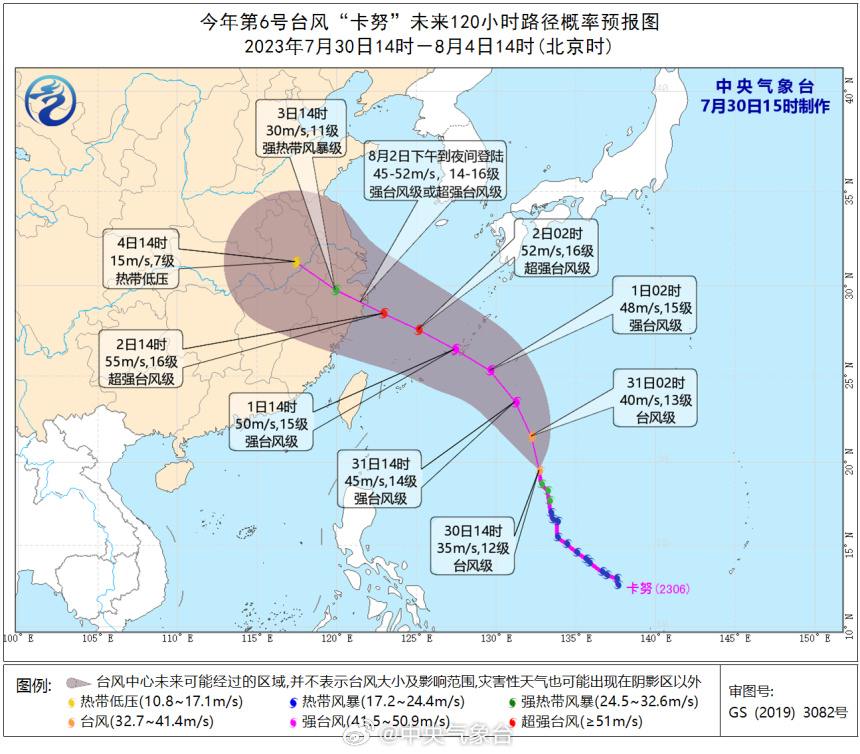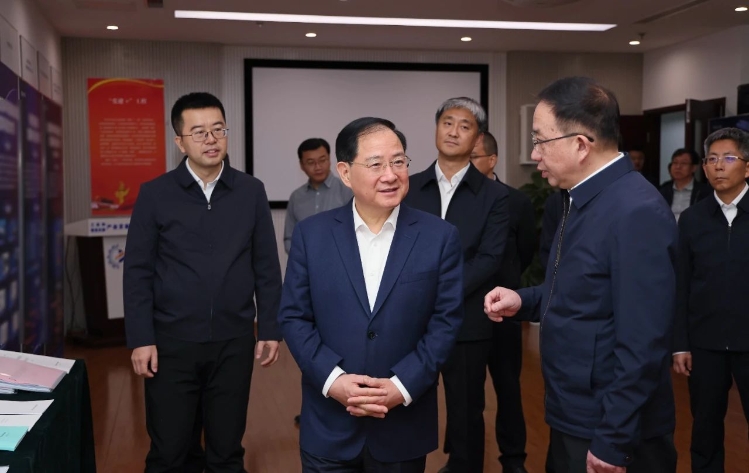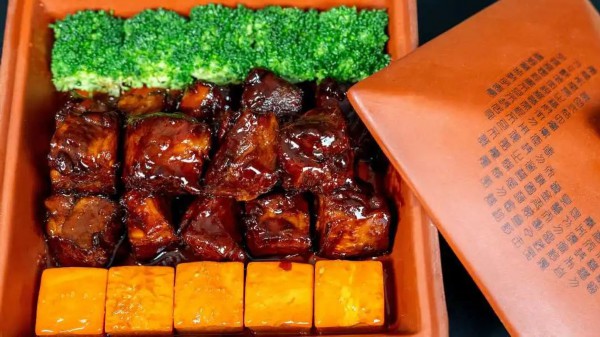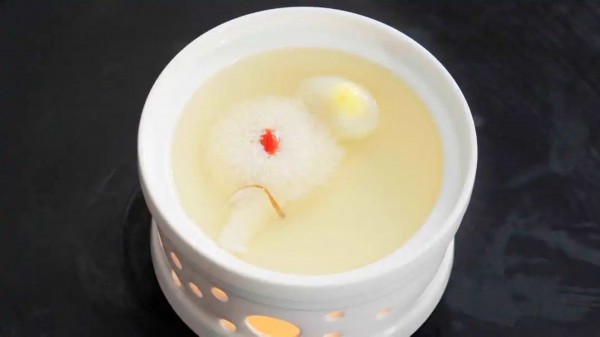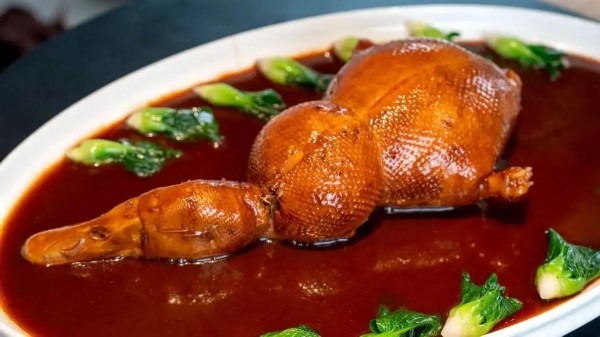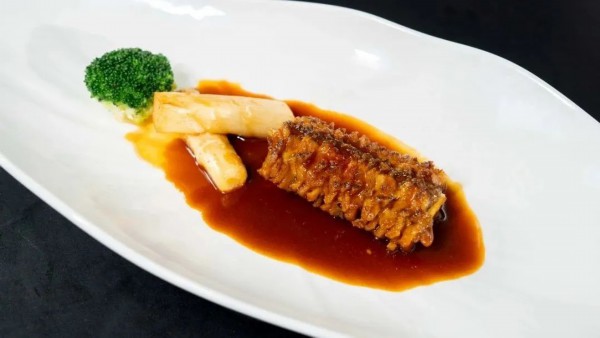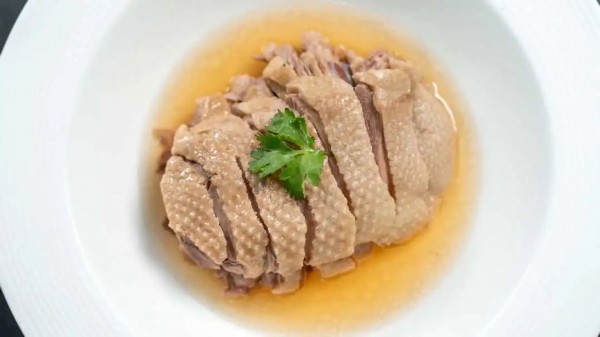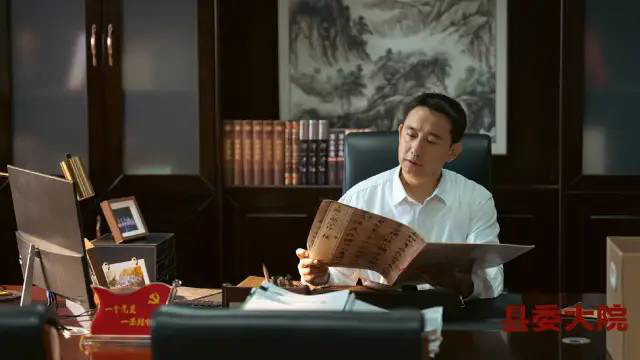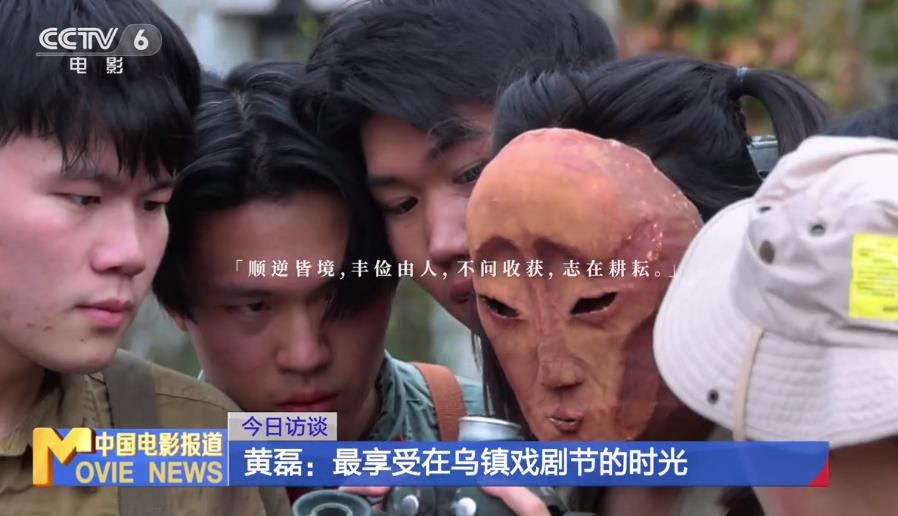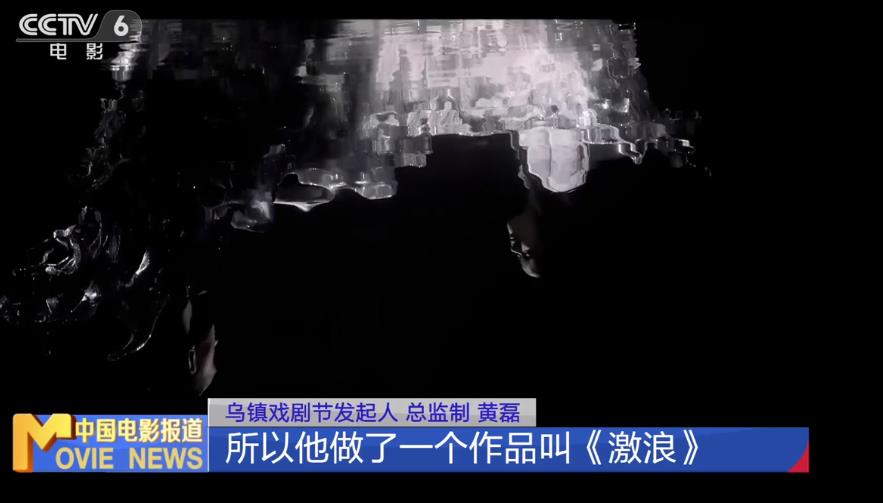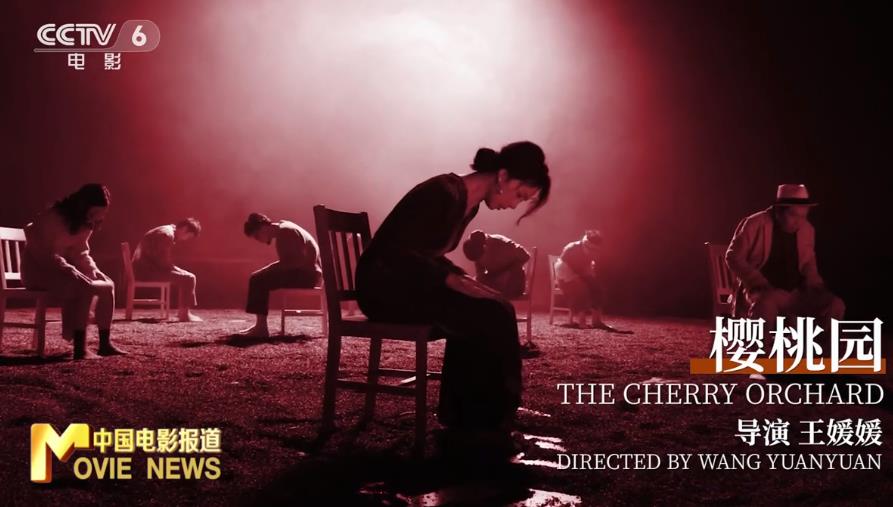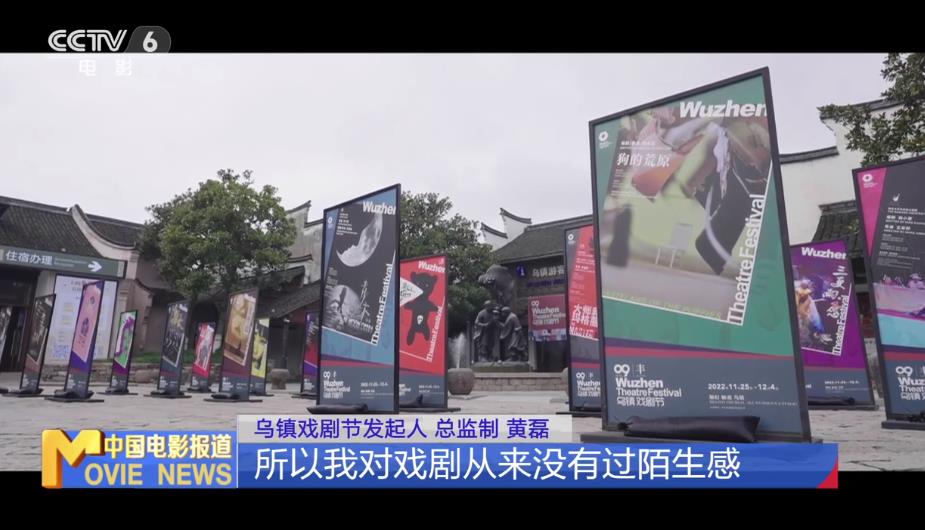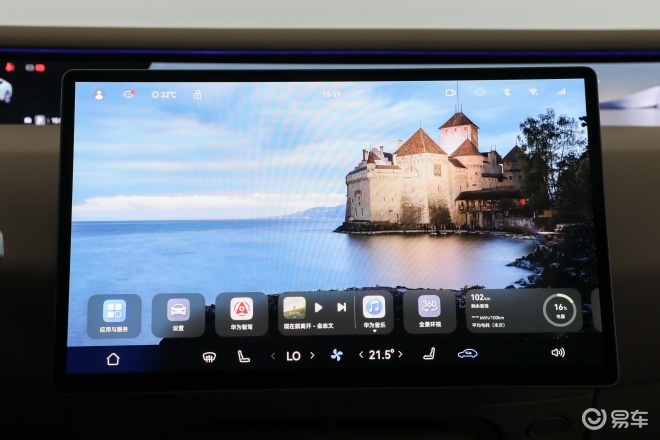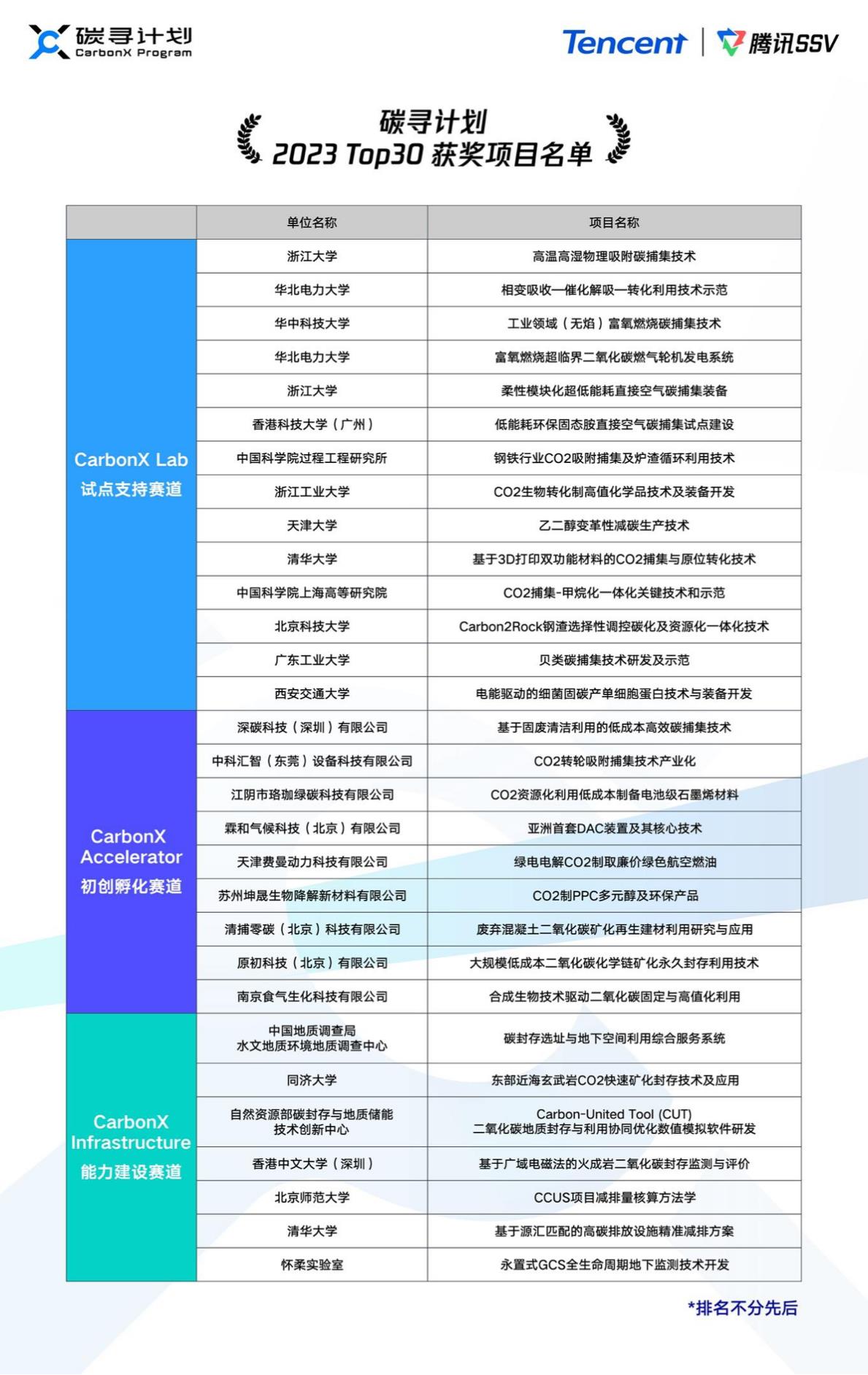editorial comment/note On April 22, the Supreme People’s Procuratorate held a press conference to introduce to the media the situation of procuratorial organs’ strengthening judicial protection of intellectual property rights in 2013, and announced ten typical cases of procuratorial organs’ protection of intellectual property rights in 2013. Among the 10 selected cases, there are 5 cases of copyright infringement, 3 cases of trademark infringement and 2 cases of trade secret infringement; There are 8 criminal cases, 1 civil protest case and 1 administrative protest case, involving many knowledge-based economic fields such as industrial technology, e-commerce and software information. In order to focus on the new progress made in the judicial protection of intellectual property rights by procuratorial organs and provide guidance for the correct application of laws in handling intellectual property cases in various places, this newspaper has compiled and published these ten typical cases, so please pay attention.
Typical case 1
The case of four people, including Yibo Company, Ward Company and Yu Zhihong, infringing trade secrets.
Case fact: Guangdong Zhuhai Saina Printing Technology Co., Ltd. (hereinafter referred to as "Saina Company") was established in 2006. It is an innovative enterprise integrating R&D, manufacturing and sales of laser printers and other printing consumables. It has more than 330 proprietary technologies at home and abroad, and has won the title of "Global Leading Enterprise in General Laser Printing Consumables Industry", "2011 Forbes China Potential Enterprise" and "Guangdong Famous Brand Enterprise".
From January to March, 2011, Yu Zhihong, the former executive deputy general manager of Seine Company, and others imitated the business model of Seine Company, and established Jiangxi Yibo Electronic Technology Co., Ltd. (hereinafter referred to as Yibo Company) and Guangdong Zhongshan Ward Company (hereinafter referred to as Ward Company), and established three companies dedicated to selling Yibo Company’s products in Hong Kong, the United States and Europe. Subsequently, Yu Zhihong joined Luo Shihe, former sales director of Seine Company, Li Yinghong, former product manager and Xiao Wenjuan, former product sales manager, to work in Yibo Company and Ward Company without going through the resignation formalities with Seine Company. When the four people left their jobs, they took away the business information of Seine’s customers privately, and through the analysis of the information, they formulated a targeted sales strategy and price system, and then dumped the products to Seine’s customers. The behavior of Yu Zhihong and others maliciously competing for customers of Seine Company has caused huge economic losses to the company, caused great difficulties in its production and operation, and caused the company to be on the verge of bankruptcy.
Proceedings: On January 28, 2012, the public security organ applied to the procuratorial organ for approval to arrest the persons involved on suspicion of infringing trade secrets. On February 3 of the same year, Zhuhai City Procuratorate made a decision to approve the arrest; On June 6th, the case was transferred for review and prosecution. On July 9, 2013, Zhuhai Intermediate People’s Court made a second-instance judgment, and sentenced Yibo Company to a fine of 21.4 million yuan for the crime of infringing trade secrets; Ward Company fined 14.2 million yuan; Yu Zhihong and other four people were sentenced to fixed-term imprisonment ranging from six to two years, and each was fined from 1 million yuan to 100,000 yuan.
Comments: This case was undertaken by the Intellectual Property Office of High-tech Zone of Zhuhai Procuratorate, Guangdong Province, the first independent intellectual property office in China. In view of the complexity of the case, inter-provincial crimes, many people involved, strong professionalism, and difficulties in investigation and evidence collection, the procuratorial organs promptly intervened and actively urged the public security organs to file a case for investigation and put forward targeted suggestions to guide the investigation. At the same time, they followed up the investigation activities throughout the process, so that the case could be successfully handled.
The typical significance lies in the high amount of crimes, great harm and wide influence in this case. The successful handling of the case fully reflects the institutional and institutional advantages of the specialized handling mode of intellectual property cases of procuratorial organs, as well as the ability and determination of procuratorial organs to dare to supervise and be good at supervising major difficult and complicated cases and strictly perform their legal supervision duties according to law.
Typical case 2
Eight people including Ruichuang Company and Han Meng infringed copyright.
Case fact: Since 2008, Han Meng, general manager and Han Hongchang, deputy general manager of Shanghai Ruichuang Network Technology Co., Ltd. (hereinafter referred to as "Ruichuang Company"), in order to promote the company’s 2345 navigation website, instructed employees Qian Wuxing, Luo Hua and others to make pirated operating systems such as "Radish Home" by illegally copying Microsoft’s Win-dows operating system software. And bind and integrate malicious code in pirated software, and increase the company’s website views, attract paid advertisements, load paid links, and gain huge illegal benefits by publishing download links and hiring people to distribute pirated CDs offline for free. After auditing, the 2345 website earned a total operating income of 23.87 million yuan for Ruichuang Company.
Proceedings: In March 2011, Shanghai Public Security Bureau filed a case to investigate the case. Designated by the Municipal Procuratorate, the Procuratorate of Pudong New Area sent personnel to intervene in the investigation and guide evidence collection in advance. On June 4, 2012, the case was prosecuted. On February 4, 2013, the court in Pudong New Area fined Ruichuang Company 10 million yuan for copyright infringement, and sentenced Han Meng, Han Hongchang and others to prison terms ranging from three years to one year and six months, and each fined 1 million yuan to 100,000 yuan. This judgment is effective.
Comments: The infringement in this case lasted for three years, involving 286 cities in 29 provinces (autonomous regions and municipalities directly under the Central Government), and the amount of infringing software and illegal business was extremely huge. The injured unit (Microsoft) had filed a civil compensation claim of 100 million yuan in this case.
The typical significance is that the procuratorial organs did not handle the case, but extended the effect of handling the case. They not only actively carried out court education to urge the infringer to sincerely repent, but also tried their best to repair social relations and completely resolve the contradictions between the parties. Eight defendants bowed and apologized to the injured unit in court. After the trial, the defendant unit issued an apology statement through official website, and compensated the injured unit for 36 million yuan, obtaining the understanding of the injured unit. After the case was pronounced, the injured unit made a special trip to the procuratorate to express appreciation and gratitude to the judicial organs in China for their efforts and meticulous work style in cracking down on infringement and piracy.
Typical case 3
Jiafei Company sells counterfeit registered trademarks.
Case fact: From October 2011 to February 2012, Gong Yingbing, the general manager of Chongqing Jiafei Trading Co., Ltd. (hereinafter referred to as "Jiafei Company") and Wang Ziquan, the legal representative of the company, conspired to buy Feitian Moutai with a registered trademark of Kweichow Moutai for profit. The latter two organized company personnel to sell the above-mentioned fake wine at the sales business meeting. Up to the time of the incident, Jiafei Company has sold 240 bottles of fake Feitian Moutai, with a total sales amount of 270,360 yuan; 128 bottles of fake Feitian Moutai that have not been sold (calculated by the average sold price, the value is 144,192 yuan).
Proceedings: On March 15th, 2012, the Procuratorate of Yunyang County in Chongqing issued a procuratorial proposal to the County Bureau of Commerce, requesting that the clue of Jiafei Company’s case of selling fake Kweichow Moutai be transferred to the County Public Security Bureau. The county bureau of commerce then handed over the case clues to the public security organs. On March 28th, the county public security bureau filed a case for investigation on the crime of allegedly selling goods with counterfeit registered trademarks. After filing the case, the county procuratorate continued to track the investigation of the case and guided the county public security bureau to dig out the case of Xiao Moumou in Guizhou manufacturing and selling counterfeit Moutai. After obtaining the clue of Xiao Moumou’s case, the Ministry of Public Security directed Chongqing, Guizhou, Sichuan and other places to act in a unified way, and destroyed the dens for manufacturing and selling counterfeit Moutai in one fell swoop. On April 25, 2013, the county public security bureau requested the county procuratorate to approve the arrest of Wang Ziquan and Gong Yingbing. On April 28th, the procuratorate made a decision to approve the arrest. On July 10th, the case was prosecuted. After the second trial of the case, the court finally sentenced Jiafei Company to a fine of 200,000 yuan for selling goods with counterfeit registered trademarks, sentenced Wang Ziquan and Gong Yingbing to two years and six months in prison, and each fined 136,000 yuan. This judgment is effective.
Comments: This is a case that successfully supervised the transfer of suspected criminal cases by administrative law enforcement agencies relying on the working mechanism of linking administrative law enforcement with criminal justice.
The typical significance is that the procuratorial organs are not satisfied with supervising the transfer of cases of selling fake liquor, but continue to track the investigation of cases and guide the public security organs to dig out a major case of manufacturing and selling fake Moutai liquor across provinces. After the local public security organs reported to the Ministry of Public Security, the Ministry of Public Security directed the public security organs in Chongqing, Guizhou, Sichuan and other places to act in a unified way, destroying an inter-provincial source of manufacturing and selling fake wine in one fell swoop and expanding the effect of handling cases.
Typical case 4
Li Haitao and other three people violated trade secrets.
Case fact: In August 2006, Li Haitao resigned from Qilu Pharmaceutical Co., Ltd. Before and after his resignation, Li Haitao obtained the production technology of ceftazidime and other drugs by illegal means. In August 2008, Li Haitao purchased the production process of cefminox from Jin Chao, an employee of Qilu Antie Pharmaceutical Co., Ltd. (hereinafter referred to as Qilu Antie Company). From the end of 2006 to 2010, Li Haitao illegally disclosed the production process of five drugs, including ceftazidime, to Zhao Yuxin, assistant director of Harbin Pharmaceutical Group Pharmaceutical Factory, and allowed them to be used. Knowing that the above-mentioned pharmaceutical production process was illegally obtained, Zhao Yuxin still carried out process test, technical reserve and process improvement in the General Pharmaceutical Factory of Harbin Pharmaceutical Group. It was identified that Li Haitao and Zhao Yuxin illegally disclosed and obtained ceftazidime and other five production processes, which caused economic losses of more than 2.46 million yuan for Qilu Antie Company, and Jin Chao’s illegal disclosure of cefminox production process caused economic losses of more than 1.14 million yuan for Qilu Antie Company. After the incident, Li Haitao compensated Qilu Antu Company for its economic loss of 600,000 yuan, and Jin Chao compensated Qilu Antu Company for its economic loss of 10,000 yuan.
Proceedings: On October 27th, 2011, Licheng Branch of Ji ‘nan Public Security Bureau applied to the procuratorate for approval of the arrest of Li Haitao, Jin Chao and Zhao Yuxin on suspicion of illegally obtaining computer information system data. After examination, the procuratorial organ made a decision to approve the arrest of Li Haitao, Jin Chao and Zhao Yuxin on suspicion of infringing trade secrets. On June 8, 2013, Jinan Intermediate People’s Court made a second-instance judgment, and found Li Haitao, Jin Chao and Zhao Yuxin guilty of infringing trade secrets, and sentenced them to fixed-term imprisonment ranging from two years and six months to one year and three months respectively, and fined them.
Comments: The victim Qilu Antie Company is a subsidiary of Qilu Pharmaceutical Factory, a well-known domestic pharmaceutical company, and the largest professional manufacturer of cephalosporin APIs in China. The case is complicated, professional, long in time span and difficult to obtain evidence.
The typical significance is that in order to find out the facts of the case, the procuratorate not only carefully checked the evidence, but also detailed the outline of supplementary investigation, guiding the public security organs to collect, retrieve and fix the evidence, which laid a solid foundation for the successful handling of the case. In particular, the accurate identification of the nature of the case by the procuratorate has enabled the public security organs to adjust the direction of investigation and evidence collection in time and ensure the quality and effectiveness of cracking down on crimes.
Typical case 5
Case of copyright infringement by 19 people including Xinfeishi Company and Zheng Wuyue.
Case fact: In December 2011, Zheng Wuyue and Zhang Xiulan contacted Guangdong Xinfeishi Laser Technology Co., Ltd. (hereinafter referred to as "Xinfeishi Company", a formal enterprise producing audio-visual products in Guangzhou, Guangdong Province) through Zhang Shaobo to produce 4,000 pirated CDs of the movie "Wolf Smoke Everywhere". Xinfeishi Company produced the pirated CD for Zhang Shaobo without the permission of the copyright owner Zhejiang Hengdian Film and Television Production Co., Ltd. Packed by Zheng Wuyue and Zhang Xiulan, the CDs were sold all over the country. After the incident, the public security organs seized more than 150,000 pirated CDs, master discs, disc cores and other illegal audio-visual products from Zheng Wuyue, Zhang Xiulan, Zhang Shaobo and their offline retailers, and frozen more than 3 million yuan in the accounts of the registered personnel.
Litigation: The film Wolf Smoke Everywhere was shot by Zhejiang Hengdian Film and Television Production Co., Ltd. with an investment of 42 million yuan. After it was released on December 2, 2011, it was discovered that it was pirated on December 5. On December 6th, the Public Security Bureau of Dongyang City, Zhejiang Province filed an investigation on the copyright infringement of the movie "Wolf Smoke Everywhere", and arrested 19 pirated CD wholesalers Zhu Guoqing, Zhang Xiulan and Tang Shuigen, pirated CD retailer Pan Juzeng and their employees, and the staff of the pirated CD manufacturer Xinfeishi Company, destroyed 5 pirated CD dens and seized 4 pirated CD production lines. Dongyang City Procuratorate made a decision to approve the arrest of 17 of them on suspicion of copyright infringement (two others were released on bail pending trial). After the case was transferred for review and prosecution, the procuratorial organ additionally identified the unit criminal behavior of Xinfeishi Company. In September 2013, Dongyang City Court held a hearing on the case and adopted all the public prosecution opinions of the procuratorate, and sentenced the defendant unit to a fine of 2 million yuan for copyright infringement; Nineteen people including Zheng Wuyue, Zhang Shaobo and Zhang Xiulan were sentenced to fixed-term imprisonment ranging from four years and six months to ten months, and each was fined from 1 million yuan to 20,000 yuan.
Comments: This case is jointly supervised by the Ministry of Public Security and the Ministry of Culture, and it is a case that seriously infringes on the development of local film and television culture industry. The case involves a wide range, many people, and the criminal links are complicated, which has attracted much attention from the society.
The typical significance lies in that the procuratorial organs fully performed their procuratorial functions, intervened in investigation in time, guided evidence collection according to law, successfully prosecuted unit crimes, and urged the public security organs to completely destroy several dens selling pirated CDs all over the country, and urged some people involved in the case to surrender themselves. At the same time, the procuratorial organs also actively recovered more than 25 million yuan in economic losses for the injured enterprises.
Typical case 6
Zhu Jianjun infringed copyright and Luo Mingyong and other 13 people sold infringing copies.
Fact of the case: In October 2011, Luo Mingyong, Ning Chuanyin and others conspired to set up a gang that illegally copied CFA textbooks with unified supply, unified purchase price, unified sales price and unified dividend sales (note: CFA is the abbreviation of "Certified Financial Analyst" or "Chartered Financial Analyst" and is the internationally recognized highest certificate of financial and securities industry) in order to gain illegal benefits. As of the time of the incident, Zhu Jianjun sold more than 20,000 sets of CFA textbooks illegally printed to Luo Mingyong and others, with a total sales amount of more than 1 million yuan. From January to March, 2012, the gang’s illegal income from selling illegally copied CFA textbooks totaled more than 1.3 million yuan. In July 2012, the public security organs seized 25,000 pirated CFA textbooks in the warehouse rented by Luo Mingyong.
In addition, it was found that Ning Chuanyin illegally copied and sold ACCA teaching materials in collaboration with others without the authorization of the obligee (note: ACCA refers to "international certified public accountant" and is one of the most authoritative certificates in the field of accounting and finance in the world). Up to the time of the crime, Ning Chuanyin had sold 100 Yu Ben of illegally copied ACCA textbooks, making an illegal profit of more than 2,500 yuan. The public security organs seized 521 illegally copied ACCA textbooks that Ning Chuanyin had not yet sold.
Proceedings: On June 8, 2012, Yangpu Branch of Shanghai Public Security Bureau filed a case for investigation. On August 22 and September 19, 2012, 14 people involved in the case were arrested with the approval of Yangpu District Procuratorate. On November 22nd, the case was prosecuted by Yangpu District Procuratorate. On February 1, 2013, Yangpu District Court sentenced Zhu Jianjun to three years and eight months in prison for copyright infringement and fined him 150,000 yuan. Thirteen people, including Luo Mingyong, were sentenced to fixed-term imprisonment ranging from one year and six months to eight months for selling infringing copies, and each was fined ranging from 70,000 yuan to 35,000 yuan. This judgment is effective.
Comments: This case is the largest pirated textbook case seized in Shanghai in recent years. Fourteen people, including Zhu Jianjun and Luo Mingyong, formed a gang with unified supply, unified purchase price, unified selling price and unified dividends to illegally copy the teaching materials of certified financial analysts and international certified accountants. There are many people involved in the gang, and the division of labor among members is strict and the relationship is complex, so it is very difficult to obtain evidence.
The typical significance lies in that, in view of the fact that intellectual property crimes are frequently occurring, the criminal methods are constantly changing, and the criminals’ ability to deal with criminal attacks is also increasing, some local procuratorial organs have set up professional teams or specialized agencies to strengthen the handling of such cases. During the handling of this case, the Yangpu District Procuratorate of Shanghai made full use of the advantages of the professional case handling mechanism, put forward opinions on the fixation of electronic evidence and the reinforcement of offline evidence, actively guided the investigation, and laid a solid foundation for the successful handling of the case.
Typical case 7
Zhongfu Electronics Company and Li Qiang case of copyright infringement.
Case fact: In July 2011, the Education and Sports Bureau of pingdu city, Shandong Province invited public bidding to purchase computers, and Qingdao Zhongfu Information Industry Co., Ltd. (hereinafter referred to as "Zhongfu Information Company") won the bid. In September 2011, pingdu city Education and Sports Bureau signed a sales contract with Zhongfu Information Company, stipulating that Zhongfu Information Company was responsible for supplying goods and installing commonly used software free of charge. On September 20, 2011, Zhongfu Information Company entrusted Qingdao Zhongfu Electronics Co., Ltd. (hereinafter referred to as "Zhongfu Electronics Company") for installation. Li Qiang, the legal representative of Zhongfu Electronics Company, downloaded WindowsXP operating software and office(2003) office software from the Internet without the consent of Microsoft (China) Co., Ltd., and hired others to copy and install the downloaded software on 1076 computers. According to the appraisal, the WindowsXP operating software and office(2003) office software installed in Li Qiang are highly similar to those of Microsoft’s related genuine software files, accounting for more than 89% of them with the same binary, and the operating interface and software functions are the same.
Proceedings: On March 11th, 2013, pingdu city Public Security Bureau transferred Li Qiang for review and prosecution for copyright infringement. On March 27th, pingdu city Procuratorate filed a public prosecution in this case. On May 2, the pingdu city court made a judgment, finding Zhongfu Electronics Company guilty of copyright infringement and fined 150,000 yuan; Li Qiang was convicted of copyright infringement and sentenced to two years’ imprisonment, suspended for two years, and fined 50,000 yuan. This judgment is effective.
Comments: This case is a new type of copyright infringement case using pre-installed computer pirated software for profit.
The typical significance is that this case is the first case in which a computer seller in China was sentenced for pre-installing pirated software. The successful handling of the case has set a precedent for criminal crackdown on pre-installed pirated software on hard disks. The procuratorial organ’s public prosecution opinion on determining the crime of copyright infringement by the number of pre-installed pirated software was finally adopted by the judicial organ, which provided a reference for investigating and punishing similar cases in the future. After the case was reported by domestic and foreign media, it received extensive positive comments.
Typical case 8
Xiao Zonghua’s case of counterfeiting registered trademarks and Chen Yuejiao’s case of selling counterfeit registered trademarks.
Case fact: From 2010 to 2012, Taiwanese businessman Xiao Zonghua instructed others to organize a number of workers in Shantou City, Guangdong Province to produce counterfeit black sugar lollipops, and sold them to Chen Yuejiao and others, with a cumulative sales of more than 1.17 million yuan. Up to the time of the incident, Chen Yuejiao has purchased 155 counterfeit "plain-handed flowers" brown sugar lollipops from Xiao Zonghua for sale at a price of more than 70,000 yuan.
Proceedings: On September 8, 2012, Huli Branch of Xiamen Public Security Bureau filed an arrest with Siming District Procuratorate of Xiamen for the crime of selling goods with counterfeit registered trademarks, such as Xiao Zonghua and Chen Yuejiao. On September 14th, the District Procuratorate arrested Xiao Zonghua on suspicion of counterfeiting registered trademarks and arrested Chen Yuejiao on suspicion of selling goods with counterfeit registered trademarks. On June 26, 2013, the district procuratorate filed a public prosecution on this case. On September 20th of the same year, the District Court sentenced Xiao Zonghua to four years and six months’ imprisonment and fined him 600,000 yuan. Chen Yuejiao was sentenced to six months’ imprisonment and fined 40,000 yuan for the crime of selling goods with counterfeit registered trademarks. This judgment is effective.
Comments: This case is a key case supervised by the Ministry of Public Security, involving Fujian, Guangdong, Taiwan Province and other provinces. The infringed trademark is a well-known trademark in Taiwan Province, and the main person involved is from Taiwan Province, which has a great social impact.
The typical significance is that the qualitative opinions put forward by the procuratorial organs in handling cases are supported by the court’s judgment, and they also put forward corrective opinions on the irregular law enforcement in investigation activities, which has achieved good results in handling cases.
Typical case 9
Tianjin Meat Joint Factory v. Song Xiaoman (civil protest case of copyright dispute)
Case fact: Tianjin Meat Joint Processing Factory (hereinafter referred to as "Tianjin Meat Joint Factory") is a large state-owned enterprise engaged in pig slaughtering and meat product production. On January 13th, 1995, the factory began to use the image propaganda products of "cartoon pig". In 1999, Tianjin Meat Joint Factory signed an advertising agency release contract with Tianjin Mutual Advertising Co., Ltd. (hereinafter referred to as "Mutual Advertising Company"), stipulating that Mutual Advertising Company would act as the advertising agency of the factory from May 8 to June 6 of that year, and use the image of "cartoon pig" in TV advertisements. On May 31st, the product advertisement published by Tianjin Meat Joint Factory in "Tonight’s Evening News" and the patent certificates for the design of "sausage packaging bag" and "label (assured meat store)" obtained by the factory all used the cartoon pig. Since then, "cartoon pig" graphics have been widely used in product packaging, specialty store plaques, product advertisements and product transport carriages by Tianjin Meat Factory.
On April 7th, 2010, Song Xiaoman registered the cartoon pig as a trademark. On August 27th of the same year, Tianjin Meat Joint Factory filed an objection application with the Trademark Office of the State Administration for Industry and Commerce. On February 20, 2012, the Trademark Review and Adjudication Board of the State Administration for Industry and Commerce ruled that the disputed trademark was revoked.
On July 30, 2010, Song Xiaoman filed an application with the National Copyright Administration, requesting that his work "Dragon Pig Lele" (i.e. "Cartoon Pig"), which was completed on March 25, 1998, be given to copyright registration. On September 2 of the same year, the National Copyright Administration issued a copyright registration certificate to him.
Proceedings: On July 14th, 2011, Song Xiaoman appealed to the Heping District Court of Tianjin on the grounds that the advertisement of Tianjin Meat Joint Factory infringed its copyright, demanding that Tianjin Meat Joint Factory stop the infringement and compensate for the losses. On April 10, 2012, the District Court ruled that Song Xiaoman’s claim was rejected. Song Xiaoman refused to accept and appealed. On September 17th, Tianjin No.1 Intermediate People’s Court, after hearing the case, held that the first-instance judgment was wrongly applied by law and revised it. Tianjin Meat Factory refused to accept the complaint and filed a complaint with the procuratorate. After examination, the Tianjin Procuratorate found that the facts identified in the final judgment lacked evidence, and filed a protest on December 3, 2012. On October 16, 2013, Tianjin No.1 Intermediate People’s Court found that the image of "cartoon pig" used by Tianjin Meat Joint Factory was legal and did not constitute infringement. The retrial judgment revoked the original final judgment and rejected Song Xiaoman’s claim.
Comments: The focus of the dispute between the two parties in this case is whether the use of trademark graphics infringes copyright. After protest, the procuratorial organ corrected the mistake of the original final judgment.
The typical significance is that the handling of this case is directly related to the people’s trust in well-known food brands. Procuratorial organs perform their civil litigation supervision duties according to law, accurately identify the facts of the case, and the protest opinions are supported by the court’s retrial judgment, which protects the legitimate rights and interests of obligees, maintains the normal market order and promotes the brand building of well-known enterprises.
Typical case 10
Wang Liang and Lin Jie v. Wuhan Administration for Industry and Commerce (administrative protest case of administrative compulsory measures)
Case fact: In August, 2005, Wuhan Administration for Industry and Commerce of Hubei Province (hereinafter referred to as "Wuhan Administration for Industry and Commerce") received a report from Shanxi Yabao Pharmaceutical Group Co., Ltd. (hereinafter referred to as "Yabao Company") that the "Ding Guibao Diarrhea Sticker" produced and sold by Wuhan Sanchu Technology Development Co., Ltd. (hereinafter referred to as "Sanchu Company") was suspected of infringing on the exclusive right of registered trademark of Yabao Company. After preliminary investigation, Wuhan Industrial and Commercial Bureau found that Sanchu Company’s behavior violated the relevant provisions of the Trademark Law and decided to file an investigation. On October 17th, 2005, Sanchu Company filed a trademark review application for the registered trademark "Ding Gui" with the Trademark Review and Adjudication Board of the State Administration for Industry and Commerce. On December 16, 2005, Wuhan Administration for Industry and Commerce lifted the compulsory seizure measures according to the relevant regulations of the State Administration for Industry and Commerce and after Sanchu Company provided a guarantee. On January 27, 2006, the Trademark Office of the State Administration for Industry and Commerce made the Reply on Issues Concerning the Trademark of "Ding Gui". On February 16th, 2006, according to the reply, Wuhan Administration for Industry and Commerce issued the Notice of Detaining Property, with Sanchu Company being suspected of producing and selling infringing goods. Sanchu Company refused to accept the decision and applied to Wuhan Municipal Government for administrative reconsideration. The reconsideration organ makes a reconsideration decision to maintain the original specific administrative act.
Proceedings: On April 29th, 2006, Sanchu Company filed an administrative lawsuit in Jianghan District Court of Wuhan, requesting an order to cancel the Notice of Holding Property made by Wuhan Administration for Industry and Commerce on February 16th. On June 30th, the District Court ruled to suspend the lawsuit on the grounds that "the basic administrative act of the accused specific administrative act has been brought by the plaintiff, and the trial in this case must be based on the trial result". On June 11th, 2009, Sanchu Company was approved for cancellation. On December 14th, the shareholders of the original company, Wang Liang and Lin Jie, continued the lawsuit as successors of rights and obligations. On December 21st, the first-instance judgment of the District Court found that the evidence of compulsory seizure measures of the Municipal Administration for Industry and Commerce was insufficient and should be revoked according to law. The Municipal Administration for Industry and Commerce refused to accept the appeal. On October 25, 2010, Wuhan Intermediate People’s Court made a final judgment to uphold the original judgment. The Municipal Administration for Industry and Commerce refused to accept the final judgment, and filed a complaint with the Wuhan Procuratorate on December 22, 2011, requesting to cancel the judgment of the second instance and maintain the Notice of Detaining Property made by it. After examination, the Wuhan Municipal Procuratorate considered that the judgment of the second instance was wrong, so it submitted a protest to the Hubei Provincial Procuratorate on June 26, 2012. On January 8, 2013, the Provincial Procuratorate lodged a protest with the Provincial High Court. After accepting the protest, the Hubei Provincial High Court ordered the Wuhan Intermediate Court to retry. The Wuhan Intermediate People’s Court held that the reason for the protest by the procuratorial organ was established, and the original judgments of first instance and second instance were revoked.Reject the claims of Wang Liang and Lin Jie.
Comments: One party in this case refuses to accept the administrative compulsory measures taken by the administrative department for industry and commerce against the property suspected of infringing the exclusive right to use trademarks, and brings an administrative lawsuit. First, the court of second instance ruled that the Industrial and Commercial Bureau lost the case. After the procuratorial organ protested according to law, the court changed the sentence after retrial.
The typical significance is that this case happened in the field of drug supervision closely related to people’s lives, health and property safety, and the trademark brand involved enjoys a high reputation in China and has a great social impact. The procuratorial organs exercised the right of administrative protest in time according to law, which prompted the court to retry and change the judgment, and supported the administrative protection of the trademark exclusive right of the obligee by the administrative department for industry and commerce. (Manuscript Coordinator: Our reporter Xu Yingyan)
